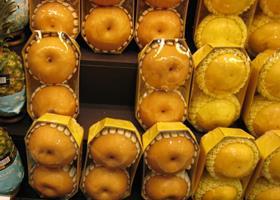
South Korea will be able to export pears to Argentina from next year after the two countries reached agreement on a new import protocol and quarantine procedures.
The Asian country, which already ships pears to Chile, Peru, Mexico and Brazil, has been trying to gain access to the Argentine market since 1997.
Following the signing of the new protocol last week, the Argentine government said it would open a 60-day comment period after which the market would open in February 2018.
The news received a lukewarm reception from Patagonian producers, who are experiencing some of the toughest years in the industry’s history.
Exports fell by 17.5 per cent fall in the first nine months of 2017 to 299,560 tonnes compared with 361,644 tonnes in the year-earlier period. Pear exports dropped from 280,855 tonnes to 236,635 tonnes, while apple exports fell from 80,789 tonnes to 61,925 tonnes.
The Argentine Chamber of Integrated Fruit Growers (Cafi), which represents growers in the Alto Valle region that produces more than 85 per cent of the country’s topfruit, said the results reflect the deepening crisis within the industry and mark the fourth consecutive year in which exports have fallen.
The association expressed concern that growers faced another difficult season due to rising costs and the weak currency. The Argentine peso slumped almost 10 per cent so far this year, the second-worst performance among 31 major currencies according to Bloomberg.
“Fruit growing is an export activity and as such, although there are other variables that influence the competitiveness of the sector, the real exchange rate is a leading variable,” Cafi said.



